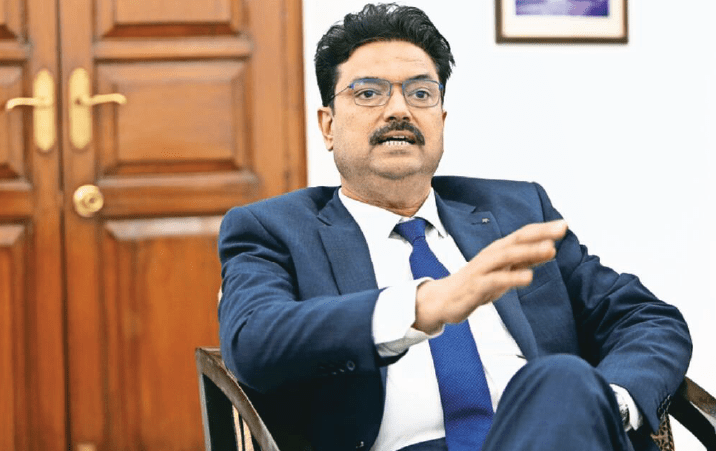Yogesh Singh, Vice-Chancellor, University of Delhi visited The Indian Express’ Idea Exchange last month, where he talked about the admission process with the introduction of CUET-UG, what can be changed to improve varsity’s position in comparison to international universities, need of good research and more.
Admission through CUET-UG
This year, the Delhi University gave admissions to aspirants on the basis of their scores in the Common University Entrance Test, undergraduate (CUET-UG). There have been some complaints by the students about the conduction of CUET UG exams, DU has managed to conduct admissions through the Common Seat Allocation System (CSAS). While the admission process was computerised and simple, the VC said that “it was a good experience, and based on this, we will make it more user-friendly next year”.
The VC also said that the reason CUET UG was adopted by the varsity was the “disparity among boards. As per the data, we realised that some boards are very lenient and some are very strict. But when we admit students across the country, without any normalisation, then some students, who come from a strict board, do not get a fair chance. Now with this test, the chances are equal. It depends on your preparedness,” he said.
Singh revealed that the varsity has “already requested the National Testing Agency (NTA) and University Grants Commission (UGC) to conduct this test twice a year. One, before the Plus Two examination, and one, after it to judge the best performance,” he said.
As of today, out of the 55,000 students we have admitted, 47,790 students are from CBSE, which is reasonable because CBSE is not Delhi alone, it is the entire country. About 2,000 students are from the ICSE board. Close to 1,280 are from Bihar board. We admitted 1,022 students from UP board, 765 from Rajasthan, 436 from Haryana, 350 from Kerala, 312 from Madhya Pradesh board, 278 from J&K board and 153 from Jharkhand board.
The varsity is sure that if the same trends prevail next time, this central university will have fair representation from every state. To achieve that, the varsity believes conducting the exam twice a year would be helpful. “The NTA and UGC should think about providing more options that will be beneficial for state-board students,” he added.
‘CBSE students have an edge in DU’
The VC believes that CBSE students surely have an “inherent advantage” in the CUET-based admissions as the entrance test uses NCERT curriculum for CUET.
“CBSE has some inherent advantage because curriculum CUET questions are from the NCERT curriculum. There are many boards that follow other curriculums. But we have given choices also. Like out of the 70 questions you can attempt 60 I think, I cannot remember the exact number. There were some options so that they can skip some questions. But now NTA and UGC should think about it and if they can provide more options which can be more beneficial for the state board students,” he added.
How to increase student intake in DU?
Singh said that the varsity is thinking of expanding teaching hours in its colleges from 8 am to 8 pm, to add more seats. “I am all for expansion and we will create new institutions in Delhi. But we should create more facilities and infrastructure in the existing institutions because that is easy to implement.”
“Good institutions, I feel, should work from 8 to 8. With that, I think, we can easily admit one or two or three more sections of students. Right now, we are working from 8 to 5. We can easily enhance the working timings from 8 to 8. Normal office timings will remain the same, from 9 to 5 or 9 to 6. But classrooms and laboratories will start from 8 am and end at 8 pm so that we can accommodate more sections so that the number of seats will be enhanced,” he said.
DU needs better research quality
The Delhi University has good research, but needs better quality of research, the VC said. “We are publishing papers, but internationally, they consider only those papers which are Scopus-indexed. Scopus is a quality trademark. Last time, we produced 802 PhDs… but we are not very quality conscious. Another (point) is the impact of research. Third, is the income generated from the research. We don’t have many success stories. We have to change that culture and the mindset of our teachers also. Normally, what happens is that teachers are satisfied after the publication of a good research paper. But now the time has come to think beyond that,” he said.
“We have now constituted two companies — Section 8 companies (an independent entity of Delhi University). Section 8 is a new thing for public institutions. We have appointed a CEO and the job of the company is to raise money, from anywhere, alumni, CSR funding… If we have that kind of money, it that can be invested in research. We have another company to promote innovations. For that, then (we need) incubators and so on,” he added.
He also added that this growth has to be largely driven by the science departments “because science faculty and students are accustomed to and have the environment for publishing quality research papers. But others are not used to it”.
Courtesy : The Indian Express








